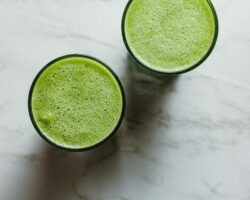Top Foods for Good Health
What do we know about superfoods? The fact that they are products containing a large amount of nutrients, vitamins and trace elements. But this is exactly what our body needs so much in this dangerous period for it, since some products really strengthen the immune system. An expert in nutrition told us about which foods can be considered superfoods for immunity.
At present, various sites are full of information about the miraculous properties of superfoods during the pandemic, and especially ginger, since it has become known that it can become a prevention of coronavirus disease. But is it really so? Ginger, indeed, has pronounced antiseptic and antibacterial properties due to phytoncides and essential oils. But such an effect can be obtained by using other products – to strengthen immunity, include various superfoods in your daily diet, which we will discuss below.
SPICES
Ginger can be replaced by super spices: red pepper; cardamom; sage; cloves; turmeric, which to some extent have anti-inflammatory, bactericidal and immunomodulatory properties. You can add them both to dishes and drinks, for example, to make tea or coffee for immunity.
KRILL
Meat and krill oil (small crustaceans) is a product with a high content of protein and polyunsaturated omega-3 fatty acids. Remember that protein is the structural material for the formation of protective antibodies, and Omega-3 has an anti-inflammatory effect. Krill meat is considered a valuable and healthy, environmentally friendly food product: it does not accumulate toxins, and also contains a large amount of vitamins and beneficial natural compounds. The composition of krill meat contains a large amount of vitamins A, B, and D.
FERMENTED PRODUCTS
The role of the intestine in the formation of the body’s immune defenses cannot be overestimated. Of particular importance for the intestinal microbiota are fermented foods and drinks: sauerkraut, pickled apples, Tibetan milk mushroom, kombucha, water mushroom. These products are obtained as a result of fermentation processes involving bacteria, fungi, molds, which are necessary to improve intestinal transit, maintain local intestinal immunity and normalize digestion.
BERRIES
Berries (raspberries, blueberries, cranberries, lingonberries, wild roses), both fresh and after shock freezing or drying, retain all vitamins, minerals, antioxidants, organic acids, pectins and tannins that are important for immunity. They can be added to yogurt, cottage cheese, cereals, smoothies, infusions, and desserts.
SHIITAKE
Shiitake mushrooms contain beta-glucans, which activate the macrophage system to fight infection.
FOOD WITH VITAMIN D
It is very important to regulate the amount of foods rich in vitamin D in your diet – it plays an important role in the regulation of the immune system: it stimulates phagocytic activity, enhances the production of antimicrobial proteins. Its storehouse is cod liver, sea fish, fish oil, so sometimes you really need to arrange fish days for yourself.
MICROGREEN
Microgreens can also be considered a true superfood. It is the sprouts of edible vegetables and herbs (arugula, spinach, parsley, basil, cereals, cabbage, radish, peas, etc.), which only release cotyledons and the first leaves 5-10 days after germination. They must be distinguished from seedlings, which have only a released root. Why are these sprouts so useful? In all young plants, the concentration of nutrients, precisely at this stage of growth, is maximum and ten times greater than in adult plants. Microgreens synthesize cytokinins – natural stimulators of cell growth and division. The composition of microgreens is rich in chlorophyll, vitamins C, E, K, group B, carotenoids, potassium, magnesium, calcium, iron, phosphorus; useful essential oils and tannins. The fresher the microgreen, the healthier it is, but heat treatment is not indicated for it.
ZINC PRODUCTS
Oysters, mussels and squid are zinc-rich superfoods. Zinc is necessary for the body not only for the formation of immune defenses, but also for the normal functioning of many organs and systems.






